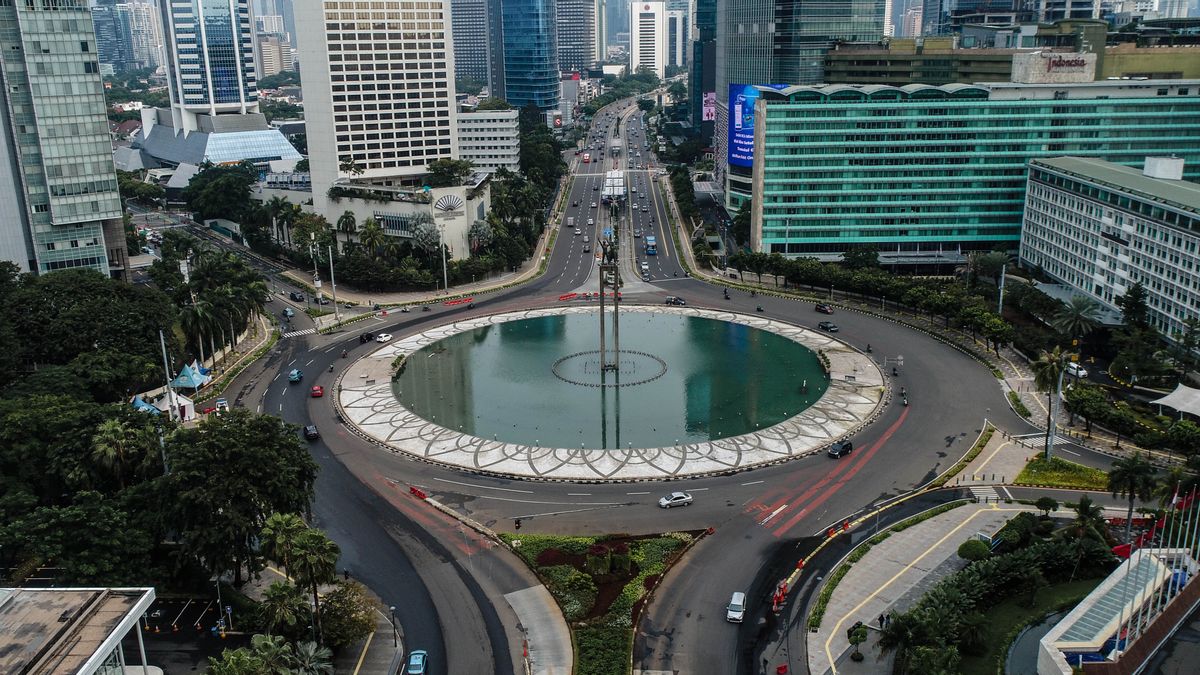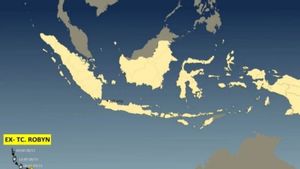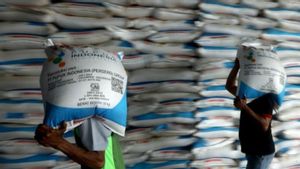JAKARTA - Executive Director of the Institute for Development of Economics and Finance (INDEF) Tauhid Ahmad reminded the government that the threat of a recession is increasingly real. Therefore, the government needs to accelerate spending. This is so that Indonesia can avoid the threat of a recession in the third quarter of 2020.
Tauhid explained, based on calculations made by his party, Indonesia is expected to enter a deep recession. He estimates, minus 4 percent in the second quarter of 2020, and in the third quarter of 2020, the estimate is minus 1.3 percent to minus 1.75 percent.
"We encourage government spending to be realized immediately to deal with the recession in the third quarter of 2020," he said in a virtual discussion, Tuesday, July 28.
According to Tauhid, the recession projection depends on the assumption of the realization of the absorption of the national economic recovery program (PEN), which has a budget of Rp.695.2 trillion. Currently, the absorption until the beginning of the third quarter of 2020 is still below 30 percent. Therefore, the threat of a recession becomes real.
As of July 27, the absorption of the PEN budget was still around 19 percent. According to Tauhid, this figure is still far from expectations.
"I think it is a bit hard to (catching up with PEN absorption) in the third and fourth quarters. We are racing against time and very much dependent on PEN. On June 16, 2020 the absorption is only 10.3 percent and July 27 only 19 percent," he said.
Furthermore, Tauhid explained, if the implementation of the PEN program was still moving slowly, it would be very possible for Indonesia to experience a contraction in the third quarter of 2020.
"In fact, our economic peak is in the first quarter to the second quarter. If we look at the third quarter it will decline. We have entered into a recession certainty area and it is difficult to return," he explained.
According to Tauhid, the demand side must be improved. This is because if the government only focuses on the supply side, it will be useless. Therefore, in improving this purchasing power, the government needs to pursue the realization of the social safety net program or social assistance.
"In a recession situation, social safety nets and driving demand are very important. We see that the achievement of 38 percent is still far from expected. If demand is not formed, others will not be too encouraging. Even though business incentives are given, liquidity is provided, MSME assistance, cooperatives and sectors. If demand is not formed this will be a problem, "he explained.
The English, Chinese, Japanese, Arabic, and French versions are automatically generated by the AI. So there may still be inaccuracies in translating, please always see Indonesian as our main language. (system supported by DigitalSiber.id)













